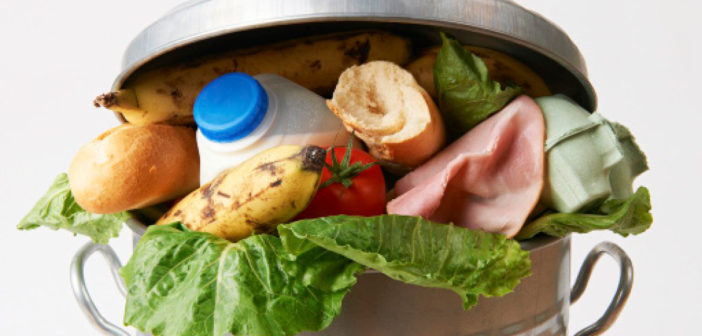

By Michayne Stoney
It may not occur to many people, but food wastage in and around homes, schools, work places, and food stores have been happening at a very alarming rate.
Most of this food ends up in landfills, and according to the United States Environmental Protection Agency (EPA), there was disposal of over 35 million tons of food waste in 2013 within the United States. Approximately 95 percent of this ended up in landfills, and at this point, food breaks down to produce methane, which is a potent greenhouse gas that contributes significantly to climate change.
Many agencies, such as EPA, have recognized the benefits of limiting food waste. Some of these benefits include: saving money, conserving energy and resources, and supporting the community by donating some of the unwanted food. The organization speaks extensively on donating food, as they recognize that many people go without a steady supply of food, while others have no problem throwing out hundreds of dollars of food.
“By redirecting unspoiled food from landfill to our neighbors in need, individuals can support their local communities and reduce environmental impact. Non-perishable and unspoiled perishable food can be donated. Donated food can also include leftovers from events and surplus food inventory,” said EPA on their website.
In other countries, such as India, food wastage is also a huge problem. According to the United Nations Development Program, “Up to 40% of the food produced in India is wasted. About 21 million tons of wheat are wasted in India and 50% of all food across the world meets the same fate and never reaches the needy. In fact, according to the agriculture ministry, Rs. 50,000 crore worth of food produced is wasted every year in the country.”
In response to this, 2015’s World Environmental Day Campaign was themed ‘Think Eat Save’. On its website, the Corporate Social Responsibility (CSR) Journal stated that the campaign was one aimed to reduce the wastage footprint. Interestingly, it also mentioned that “India ranks 63 among 88 countries in Global Hunger Index. Wastage of food is not indicative of only hunger or pollution, but also many economic problems in the economy, such as inflation.”
The CSR Journal also thought that government policies were not the only things responsible for all which were evident.
“Culture and traditions are also playing a lead role in this drama. In India, the bigger the wedding, the larger the party and the more colossal the waste” said the CSR Journal.
On the other hand, in countries such as France, food wastage has actually become a part of the law, and it is illegal for supermarkets to throw out unused food. In fact, an article released by Huffington Post on Feb. 6, 2016 talks about food wastage in France.
“Supermarkets must either compost or donate unsold and nearly expired goods to charity. The law also prohibits stores from pouring bleach over food items — a tactic some used to prevent homeless people from foraging — and mandates that schools across the country begin to educate students on the fight against food waste,” said Huffington Post.
France is the first country in the world to place a ban on supermarket food waste, according to The Guardian. Before this law was put into place, the Environment and Energy Management Agency estimated that supermarkets in France would throw away over 44 pounds of food each day, while the average person would waste 44 to 66 pounds of food each year.
Instead, most of this food is now going to local food banks, which have contracts with supermarkets. Laws have also been passed to make it illegal for supermarkets to pour bleach or water over expired food, reports independent.co.uk. Stores normally do this in an attempt to stop people from foraging through garbage to find food.
Here on campus, food wastage is seen to some extent in the dining hall. However, efforts are in place to educate students on being responsible stewards, as this is one of the most important core values.
In an interview with the Lions’ Pride, Rich Vogel, Director of Dining Services, talked about a previous attempt to limit the amount of food wasted.
“On Earth Day of 2008, dining services placed a poster board out in the dining hall. All the food which was thrown away on that day was recorded, and students were able to see that there were pounds of food being thrown out just for that one day. This led to students policing each other, and it was a lovely initiative,” said Vogel.
Vogel noted that this board, which hung above the conveyer belt, had to be taken down because it became a safety hazard as students would often bump their heads into the board.
As the Director of Dining Service, he has attended classes and has presented on this issue. He feels that if students are educated about the issues surrounding food wastage, there would be better results where this is concerned.
“This is a wonderful time for students to recognize the issue of food wastage and try to cut back. In this capacity, I cannot ensure food wastage does not occur, but I believe students can hold each other accountable for wasting food,” said Vogel.
Some students are aware of this problem on campus and are already playing their part in limiting food wastage.
“I see food being wasted a lot by students in the cafeteria. I don’t think some of them even realize how much food they are wasting on a daily basis,” said Andrina Pierre, a sophomore majoring in biology. “I am aware that there are some efforts in place to combat this, as I still vividly remember the video they showed us during SLU First Year Experience class. This video was encouraging us to be responsible stewards, and strongly urged us to not waste food in the dining hall. I really try my hardest not to waste food because I know there is someone out there who is dying of hunger as we speak.”
To help in the prevention of food wastage within the environment, students are encouraged – especially in First Year Experience classes – to watch Waste and See: Food Waste at Saint Leo University, a video which explicitly explores food wastage within the dining hall.





